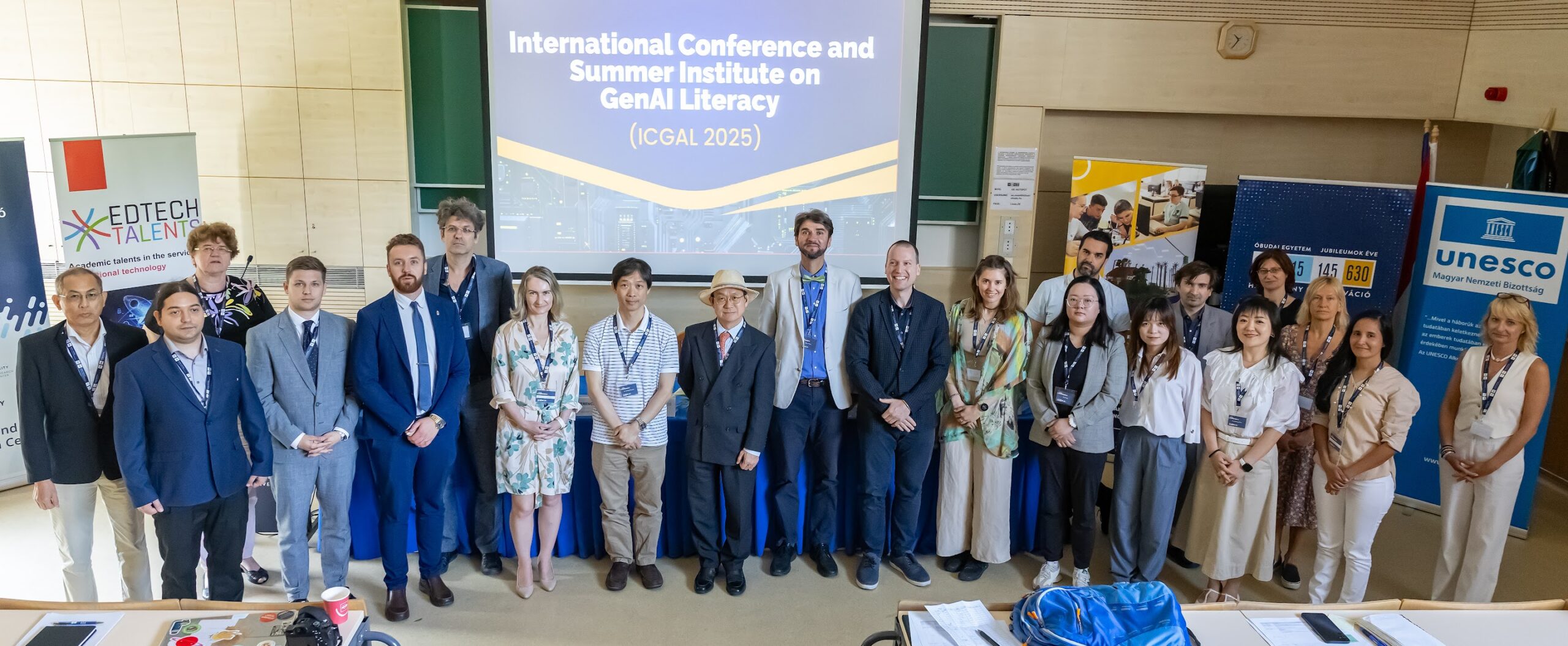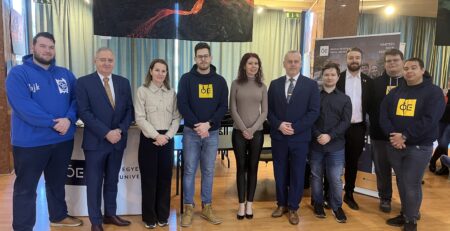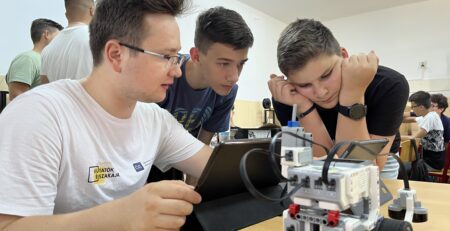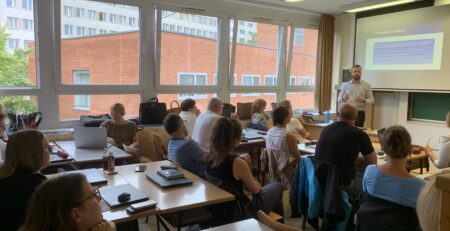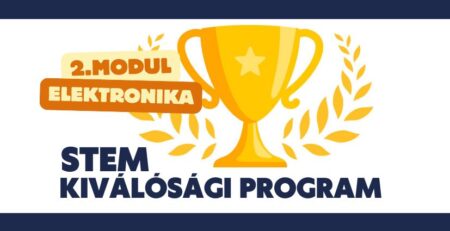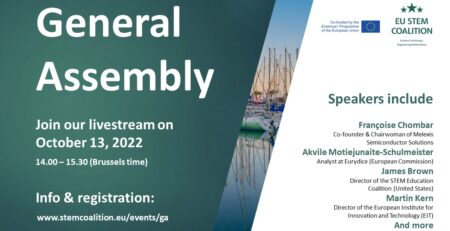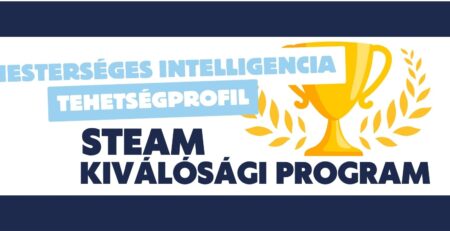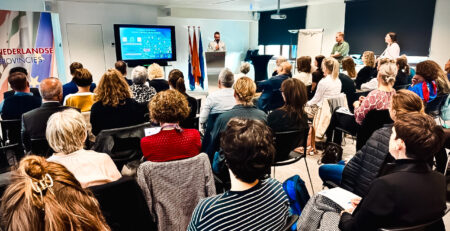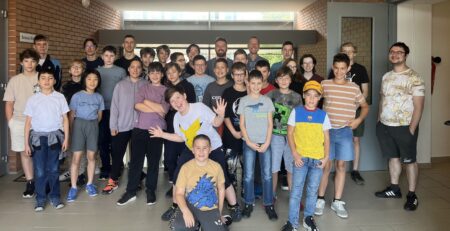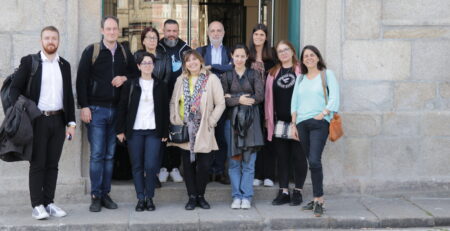ICGAL 2025: The First International Conference on GenAI Literacy Held in Budapest
arany.barna.dora2025-06-19T23:54:30+02:00Between June 10th and 13th, 2025, Budapest hosted the ICGAL 2025 (International Conference on Generative Artificial Intelligence and Learning) conference, jointly organized by Obuda University, Oxford-i-Publishing, and Experience Workshop!
Bringing together minds from 16 countries and featuring over 50 insightful abstracts, ICGAL 2025 was a truly global convergence, showcasing the cutting edge of AI’s integration into education. The hybrid format of the conference enabled wide international participation, with a significant number of attendees joining online from across the globe, further emphasizing the inclusive and borderless nature of GenAI discourse.
This event, showcasing innovations at the intersection of education and artificial intelligence (AI), was truly revolutionary, offering a glimpse into the future of learning. From fascinating paper presentations to dynamic workshops, the conference provided an unparalleled platform for educators, researchers, and innovators to share their work and collaborate on shaping the future of learning in an AI-augmented world. The sheer diversity of perspectives and the depth of the discussions truly underscored the transformative potential of generative AI in education.
The conference kicked off with an exciting workshop on Tuesday, June 10th, where participants, led by Dr. Wing Kin CHENG (Hong Kong Metropolitan University), delved into “Playful Mathematics with Dice and AI.” This session provided an excellent foundation for the intensive program of the following days.
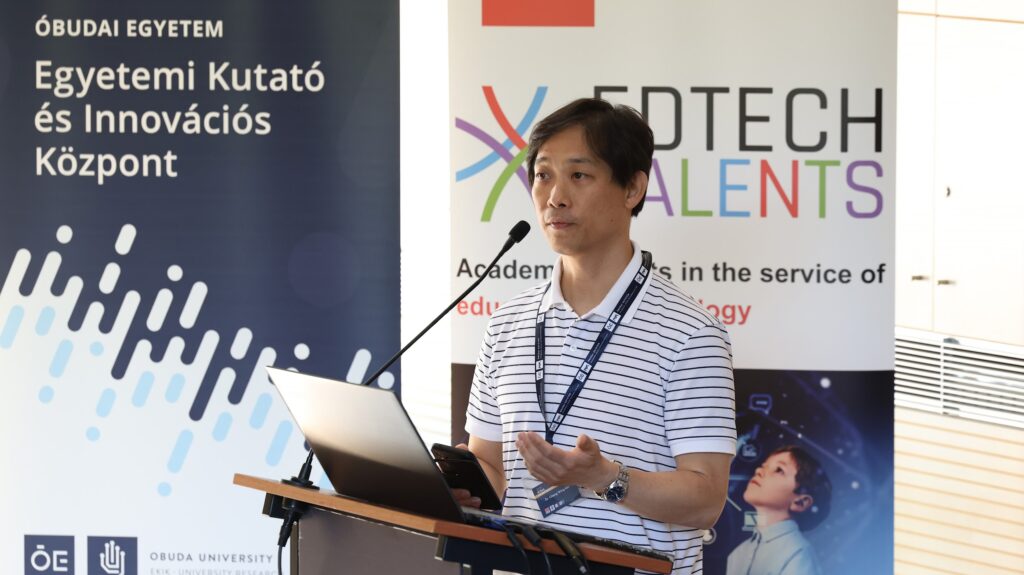
On Wednesday, June 11th, the conference began with the official opening ceremony with a warm welcome from Prof. Dr. Enikő Maior, Vice-Rector for Education at Obuda University. Her address beautifully articulated the university’s commitment to pioneering educational innovation. As she stated, “At Obuda University, we are deeply committed to promoting interdisciplinary learning and innovation in education.” She further emphasized the university’s vision, noting, “Our vision is that AI will completely disrupt our daily life, which we shall be able to exploit well to extend and augment human capabilities.” This sentiment set the perfect tone for a conference dedicated to exploring just that.
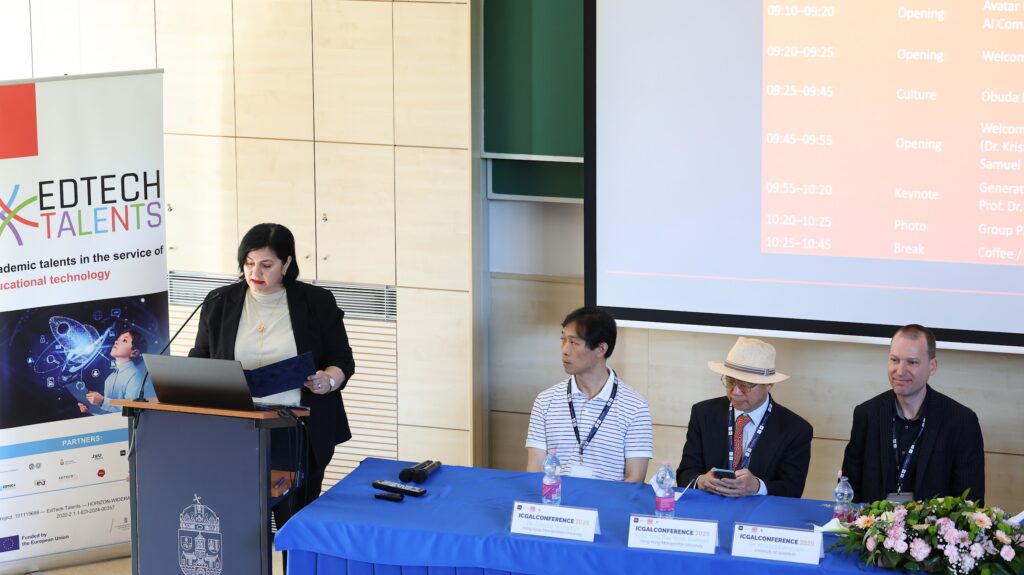
The professional program was introduced by an avatar message from the AI Government Commissioner and a speech by Dr. Gábor Soós (Secretary-General of the Hungarian National Commission for UNESCO). A cultural performance by the Óbudai Danubia Zenekar made the opening ceremony memorable.
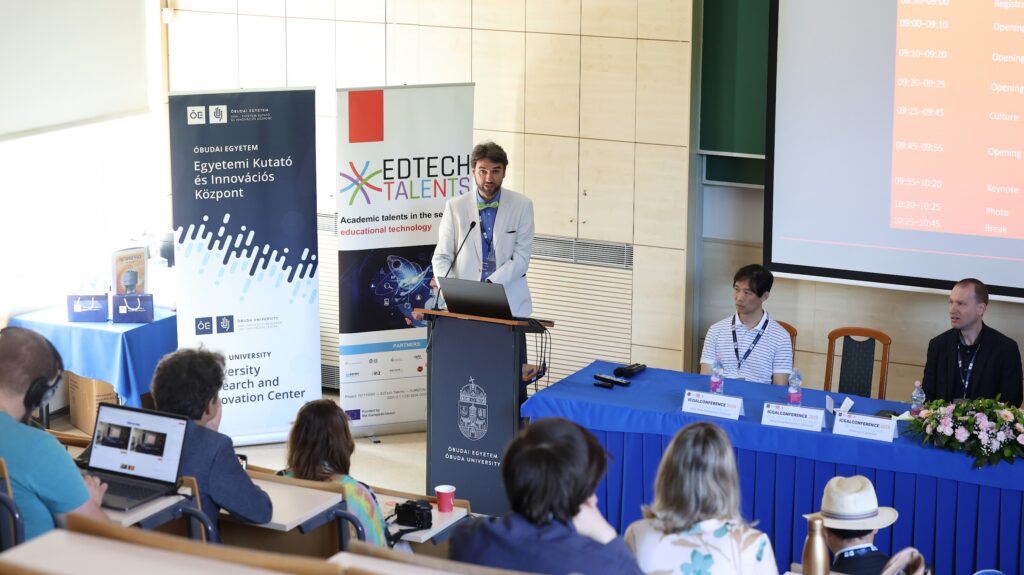
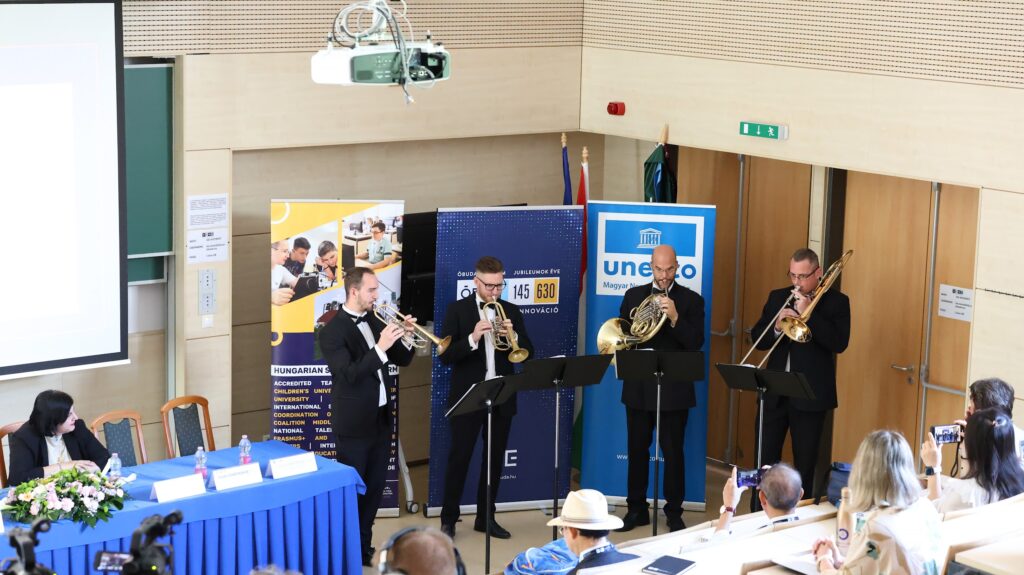
Keynote Speeches and Exciting Sessions
During the conference, participants heard numerous inspiring keynote speakers. In his presentation, Prof. Dr. Péter Galambos (Obuda University, Vice-Rector for Innovation) explored the latest trends in robotics and generative artificial intelligence, emphasizing the critical role of synthetic datasets in advancing robotic visual perception. He highlighted that “the language modality is very independent, very well structured, and very well recorded; we have everything in it, and we already have proof that chatbots are working pretty well.” He underscored that beyond vision and language capabilities, mastering fine motor skills presents the most significant challenge in robot training, as recording and standardizing the necessary data for these movements is considerably more complex than for linguistic data.
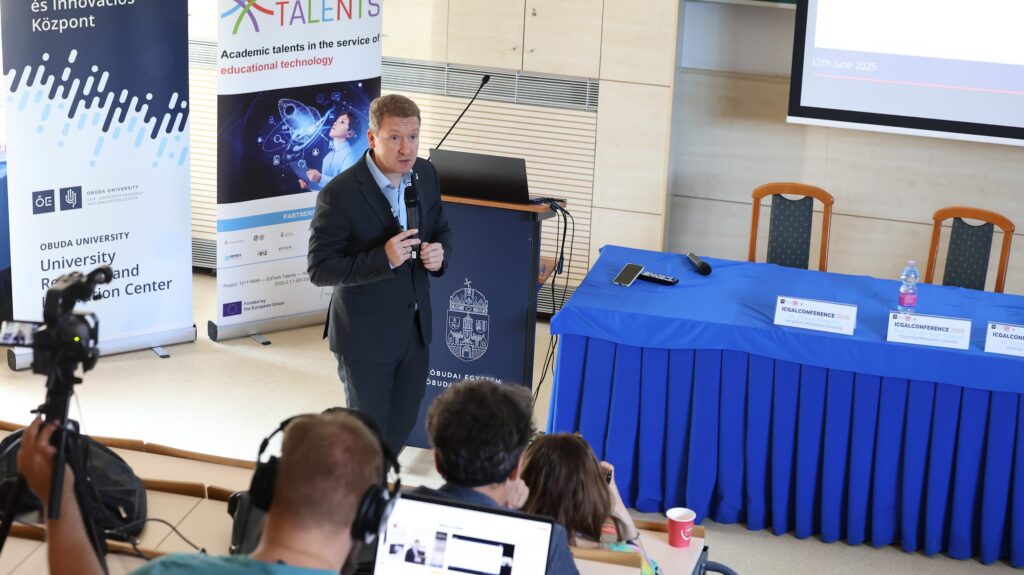
Prof. Dr. Thomas Chiu (The Chinese University of Hong Kong) explored the dual role of AI in education through a keynote and a hands-on workshop.
In his keynote speech on Wednesday afternoon, titled “Empowering Education with AI: Preparing for the Future of Learning and Work”, Prof. Dr. Thomas Chiu (The Chinese University of Hong Kong) offered a compelling overview of AI’s dual impact on education — distinguishing between AI education (teaching about AI) and AI in education (using AI to support teaching and learning). He emphasized the need to prepare students for an AI-influenced future by integrating both AI technologies and topics into educational curricula. Drawing from his empirical research, he introduced the concept of AI CRAFT education, presenting key findings and outlining future directions for practice and policy in AI-enhanced learning environments.
On Thursday afternoon, Prof. Dr. Thomas Chiu led an engaging workshop as part of the Summer School for Teachers and Educators. In this session, he introduced two practical frameworks: one focused on self-regulated learning and another on human-AI collaborative learning activities. He also shared assessment tools for measuring AI competencies among teachers and students. Participants had the opportunity to take part in interactive, hands-on activities, allowing them to explore how to design AI-supported learning experiences and apply these frameworks in their own teaching contexts.
Prof. Dr. Thomas Chiu’s contributions provided valuable insights and practical tools for both understanding and implementing AI in educational practice, bridging theory and application in a truly impactful way.
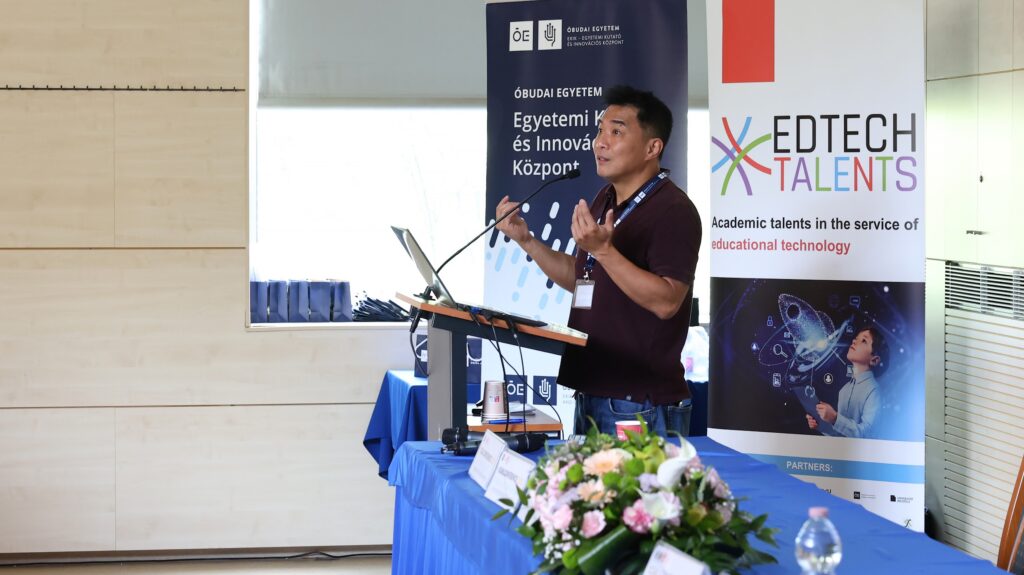
A highlight for many was the presentation by Dr. Zsombor Zrubka, Dr. Kristóf Fenyvesi, and Zoltán Márton, titled “Exploring Technology Augmentability: A Framework for Enhancing Capabilities in Education.” Their insights into how technology can augment human capabilities resonated deeply with the audience. A key takeaway from their presentation highlighted the role of STEAM pedagogy: “STEAM pedagogy provides structured, learner-centered interventions to support progression along the Technology Augmentability (TA) curve. Targets learners in low-to-mid TA zones, fostering inclusion, activation, and self-directed growth.” This really underscored the practical application of their theoretical framework.
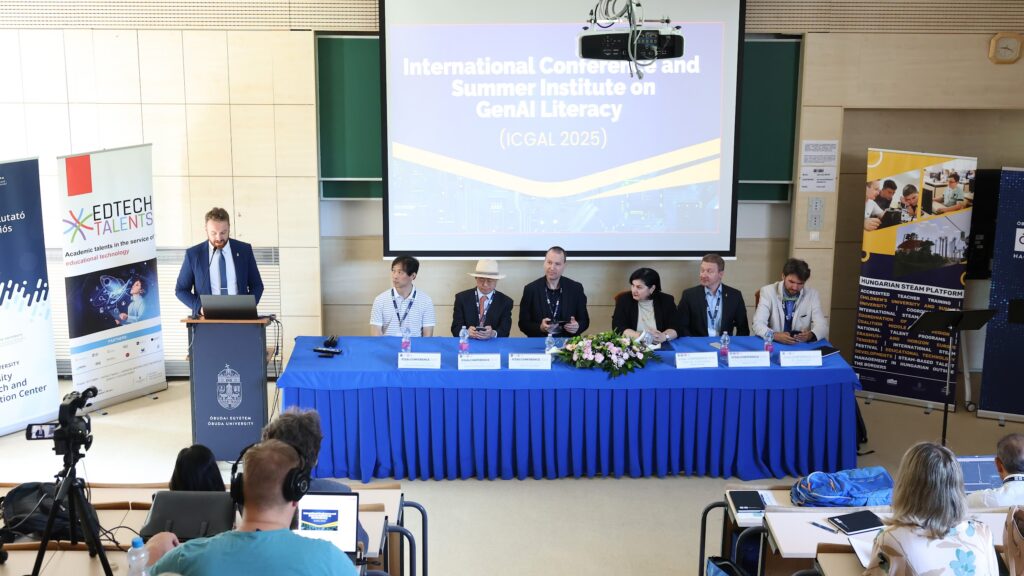
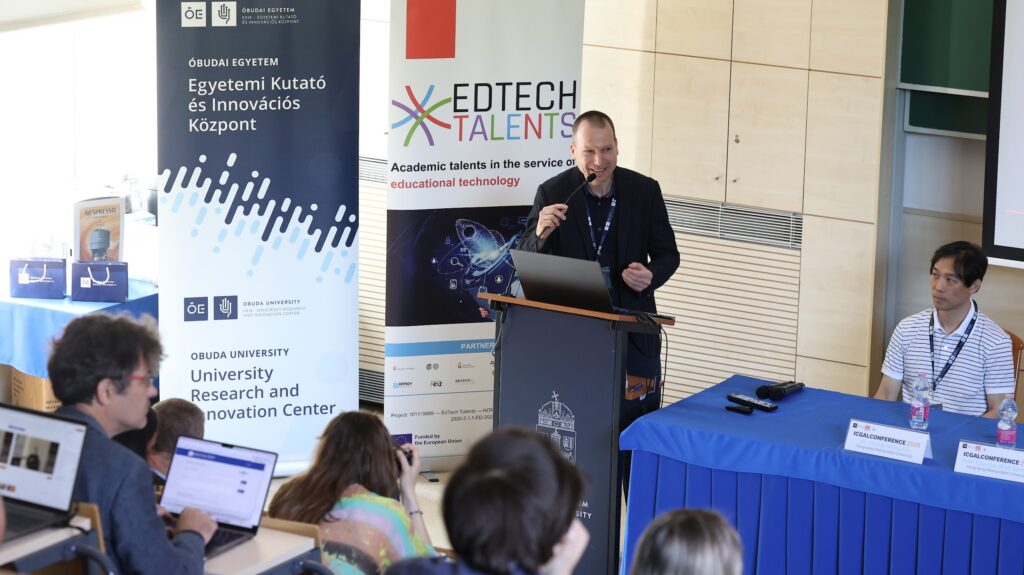
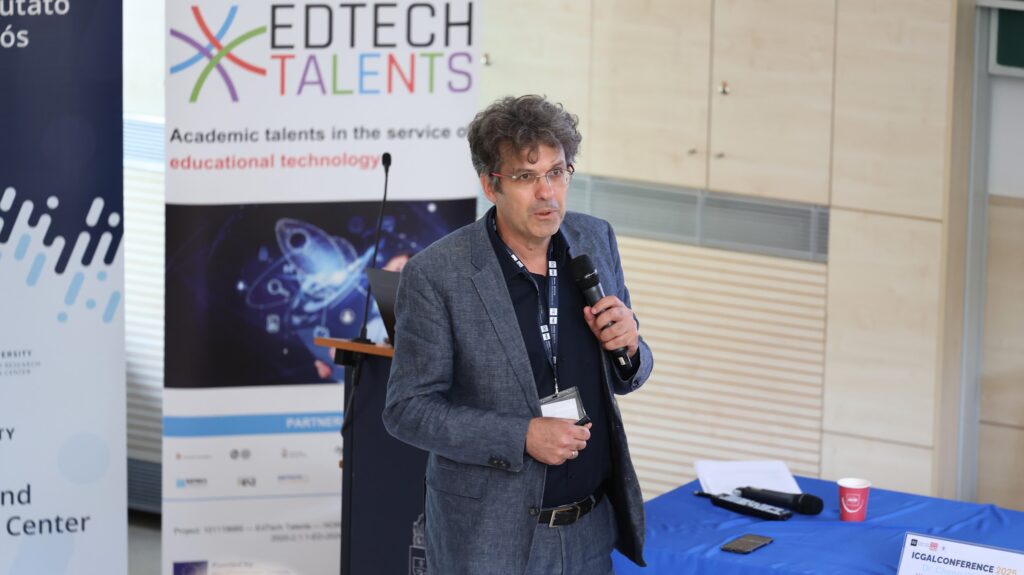
Dr. Christine O’Dea’s (King’s College London) presentation, which explored “human-centered intelligence in Industry 5.0” and discussed the skills needed for future university graduates, was also outstanding.
The parallel sessions offered numerous opportunities to delve into specific topics. The presentations covered a wide range – with over 50 abstracts presented by speakers from 16 countries, including:
- Ethical and security risks of applying AI tools in education
- Generative AI in teacher training
- AI-based gesture recognition
- Assessment and development of AI competency
- And the impact of AI chatbots on student autonomy in the flipped classroom.
During the panel discussions, exciting topics were discussed such as with Dr. Habil. György Eigner (Obuda University), Prof. Dr. Ugljesa Marjanovic (University of Novi Sad Faculty of Technical Sciences), Dr. Kristof Fenyvesi (University of Jyväskylä) and Prof. Dr. Chu, Kai Wah Samuel (Hong Kong Metropolitan University), “EU MS restrictions on smart phones – Education Technology under pressure of banning personal devices from classrooms – How come over such a barrier?“, was an incredibly insightful exploration into the complex challenges and potential solutions surrounding personal device use in the classroom. This topic is absolutely relevant to our EdTech Talents Horizon Europe project, where the University of Novi Sad and Obuda University are both consortium partners.
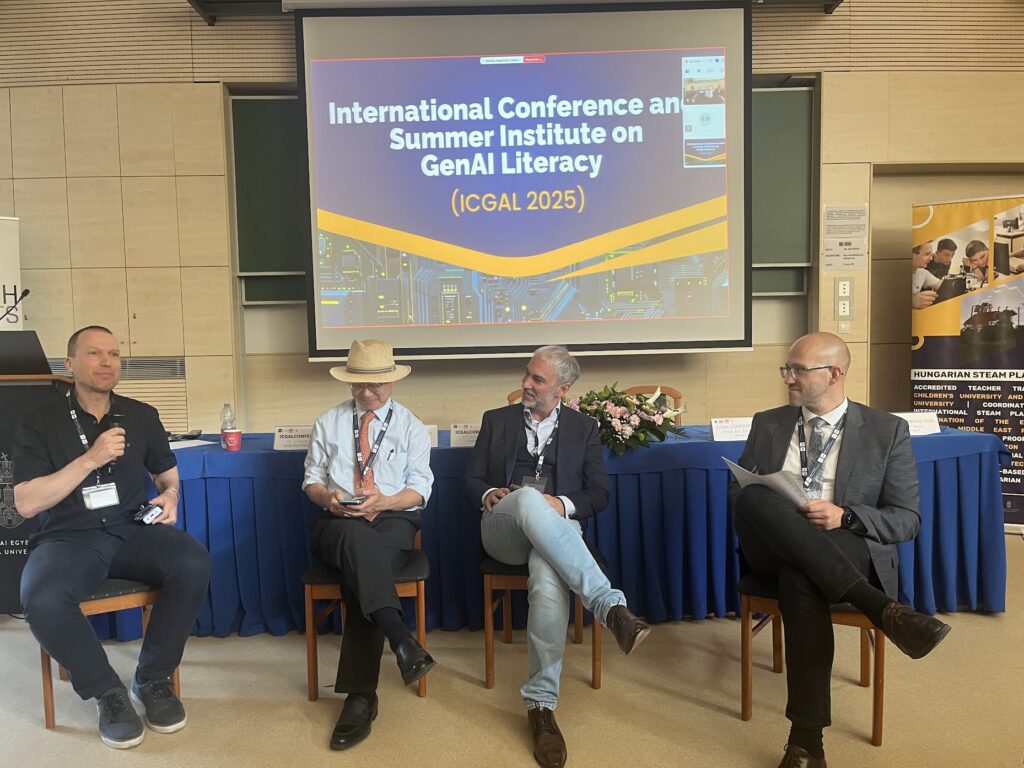
The conference also provided an excellent opportunity for networking, with coffee breaks and the conference dinner creating opportunities for informal professional discussions.
Closing Remarks and Future Directions
The second day of the conference, June 12th, concluded with perhaps one of the most engaging sessions: the STEAMCRAFT workshop, led by Dr. Kristóf Fenyvesi (University of Jyväskylä), Zoltán Márton (Obuda University), Sándor Kirchhof (Obuda University), and Prof. Dr. Zsolt Lavicza (Johannes Kepler University). This interactive session demonstrated how a custom Minecraft modification can be a powerful pedagogical tool. During the workshop, Zoltán Márton and Sándor Kirchhof also shared their experiences gained through the EdTech Talents Horizon Europe project, highlighting how their work there informs and enhances initiatives like STEAMCRAFT. The workshop’s core message resonated with attendees: “STEAMCRAFT empowers the next generation to understand complex global challenges – like climate change, energy transition, and urban sustainability – through hands-on, meaningful experiences.” Participants left inspired by the potential of game-based learning to tackle real-world issues.
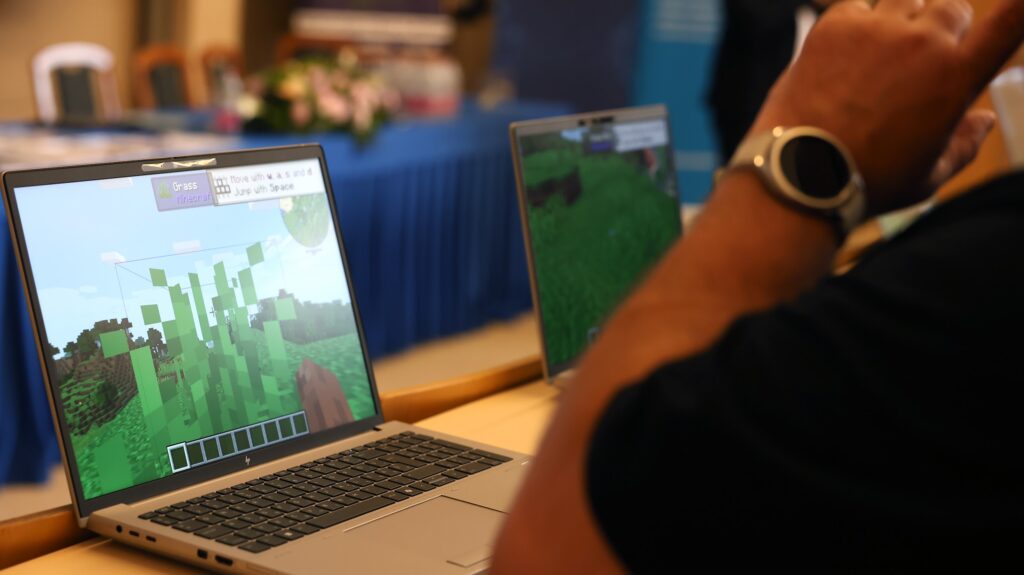
ICGAL 2025 was more than just a conference; it was a vibrant community of passionate individuals dedicated to harnessing AI for the betterment of education. The ideas exchanged, the connections forged, and the collaborative spirit that filled Obuda University are sure to ignite new research, innovative projects, and ultimately, a brighter future for learners worldwide.
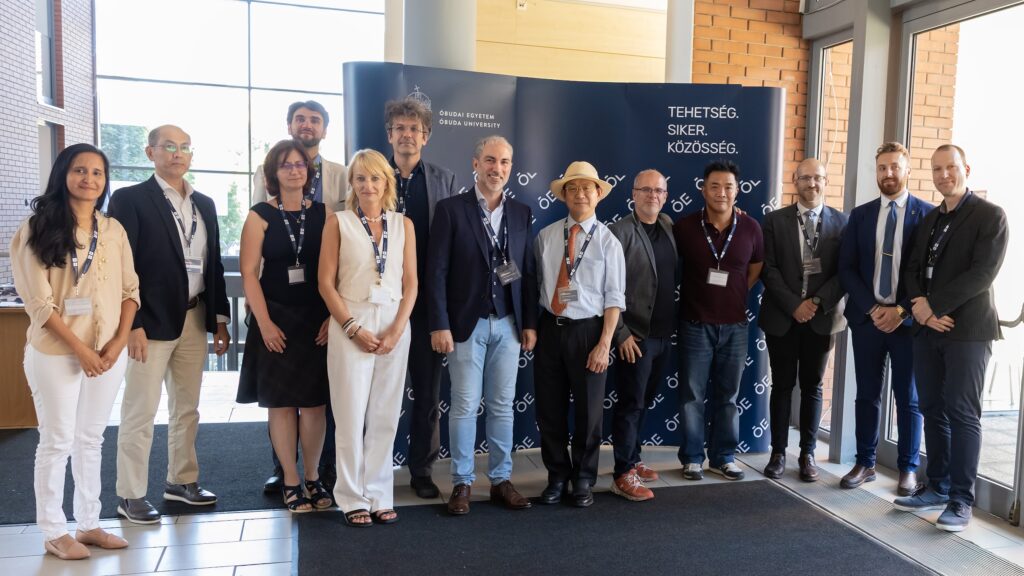
The success of this conference was significantly bolstered by the invaluable contributions from from Obuda University. We extend our deepest gratitude to Prof. Dr. Levente Kovács, DSc who served as Honorary Chair, Dr. habil. György Eigner, the International Scientific Co-Chair, for his instrumental role in shaping the academic program and ensuring its high quality. Finally, to Zoltán Márton, the Local Organizing Co-Chair, whose meticulous planning and tireless efforts were crucial in ensuring the smooth and efficient execution of all conference logistics. Their collective dedication truly made this event a resounding success.
We eagerly anticipate the next ICGAL, building on the success of this inspiring event and continuing the vital conversation about AI’s role in shaping the education of tomorrow!
Keynote speakers
Senior Member of IEEE, , Dessor of Obuda University and Director of the Antal Bejczy Center for Intelligent Robotics. Vice Rector for Innovation at Óbuda University | |
Associate Professor of Digital and STEM Education, The Chinese University of Hong Kong; Associate Director, Centre for University and School Partnership; AssociateDirector, Centre for Learning Sciencesand Technologies. | |
Senior Researcher of the FinnishInstitute for Educational Research, University of Jyväskylä, Finland | |
Experienced Researcher of health economics with a demonstrated history of working in the pharmaceutical industry, academia and healthcare. Medical doctor with an MBA and PhD focused in Health Economics. | |
Director of the Hungarian STEAM Platform and the Head of the STEAM Office at Obuda University; PhD Student at the Doctoral School onSafety and Security Sciences of ObudaUniversity.
| |
Senior Lecturer in Management and Technology Education, King’s College London |
Workshop facilitators
Senior Lecturer, Department of Education, School of Education and Languages, Hong Kong Metropolitan University | |
Associate Professor of Digital and STEM Education, The Chinese University of Hong Kong; Associate Director, Centre for University and School Partnership; AssociateDirector, Centre for Learning Sciencesand Technologies. | |
Senior Researcher of the FinnishInstitute for Educational Research, University of Jyväskylä, Finland | |
Director of the Hungarian STEAM Platform and the Head of the STEAM Office at Obuda University; PhD Student at the Doctoral School onSafety and Security Sciences of ObudaUniversity.
| |
Software Developer and IT Project Manager at the Hungarian STEAM Platform & the STEAM Office of Obuda University | |
Professor in STEAM Education Research Methods, Johannes Kepler University’s Linz School of Education |
Thank you Judit Sarai for the great photos!


